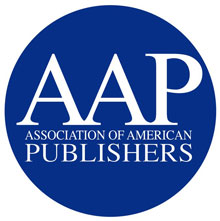August 31, 2021
Statement on Copyright Office Analysis of State e-lending Developments

Yesterday, the U.S. Copyright Office delivered a detailed response on state e-lending developments to Senator Tillis, Ranking Member of the U.S. Senate Judiciary IP Subcommittee, drawing on ample precedent and concluding that a court considering the state legislation (enacted by Maryland and pending in other states) “would likely find it preempted under a conflict preemption analysis.” In sum, preemption would mean that state e-lending legislation falls outside of the authority of the states, conflicts with the federal Copyright Act, and intrudes on the authority of the U.S. Congress to balance the copyright framework and determine the distribution of copyrighted works.
In writing to the Register of Copyrights on May 26, 2021, Senator Tillis expressed concern that the state bills would “remove from the copyright owner the decision as to whether, in what format, and on what terms works will be made available,” and requested the opinion of the Copyright Office in its (statutory) capacity as “the expert advisor to Congress on copyright matters.” The Senate Judiciary Committee leads public policy deliberations on both domestic and international copyright matters.
When it comes to connecting readers to books, public lending libraries have long been essential to publishers and this relationship has not changed as library patrons seek to borrow digital as well as physical formats. Contrary to what the state bills suggest, publishers license millions of eBook titles to libraries across the country on terms that reasonably meet the needs of local communities, while also ensuring a fair return to authors and publishers. And, in fact, all of AAP’s largest members already choose to make eBooks available for public lending on the same day that they release them commercially—a vast array of fiction and nonfiction works.
We hope that state legislators will heed the conclusion of the U.S. Copyright Office and find ways to support their local libraries without undermining either the Copyright Act or the publishing ecosystem. Moreover, while the government’s preemption analysis is consistent with AAP’s testimony in recent weeks, we have also testified to constitutional and policy concerns that go well beyond that problem. Accordingly, AAP remains deeply troubled by ongoing, coordinated lobbying efforts that seek to dictate and devalue the distribution and pricing of books in what is clearly a healthy, robust, and ever-evolving noncommercial market channel. Such efforts are antithetical to our democracy, which depends upon a vibrant private sector publishing industry that is incentivized to create and distribute original works of authorship to the public.
Read U.S. Copyright Office Analysis here.
Read AAP’s prior statements here.
